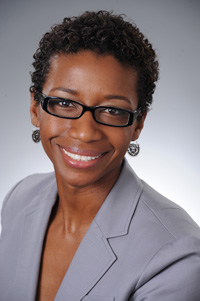CableFAX Diversity Profile—Comcast's Makesha Benson
By | October 2, 2012
In recognition and celebration of the diversity within the cable industry, we will be highlighting some of CableFAX’s Most Influential Minorities and their responses to a series of questions on mentorship, job skills and diversity. For the CableFAX Diversity issue in its entirety go here.

Makesha Benson
Regional VP, Business Initiatives
Comcast
Tell us at least one true story of a mentor (or mentors) who gave you advice you still use to this day.
One experience that sticks with me came at a time when I was struggling with the details of a job offer. I didn’t know if I should ask for more or just settle because it was “a good job with a good company.” My mentor said… “If you don’t ask, you know what the answer is.” Many of us grew up without being taught how to negotiate and ask for what’s important to us, so it’s an underdeveloped skill. To this day, I remember to ask and to be courageous when doing so.
What advice do you have for young people trying to break into the cable industry?
Don’t be afraid of “entry level.” Jobs that are closest to the customer, I’d argue, are the most crucial in this industry. Don’t get frustrated by working on the frontline or be afraid to do it. Instead, be the best and shine. The fact is that one has to put food on the table while gaining necessary experience, and the ground floor is only the beginning. Think about it, there’s still a whole elevator ride ahead, and taking that ride will give you the industry and cultural experience needed to help navigate the dynamics that school can’t really prepare you for.
In your opinion, how is cable doing on diversity? Where do you want to see improvement?
The way we define diversity is evolving as quickly as this industry is, so we need to level set on how it is defined so that we are working towards the same goal. Culturally, belts are tightening. Leaders are taking on more, and there’s seemingly less time for the hallway or “water cooler” conversation. It’s a shame really because this is where differences and similarities are understood. When leaders, executives, or employees in general connect on a personal level and begin to understand someone with an unfamiliar background and point of view, there’s an impression left and those moments really matter (especially in the board room). Taking time to connect and coordinate gatherings of unlike-minded people is where I’d like to see focus. Doing so will lead to better decision making and improved financials; there’s a definite ROI when there is effort placed on understanding others.